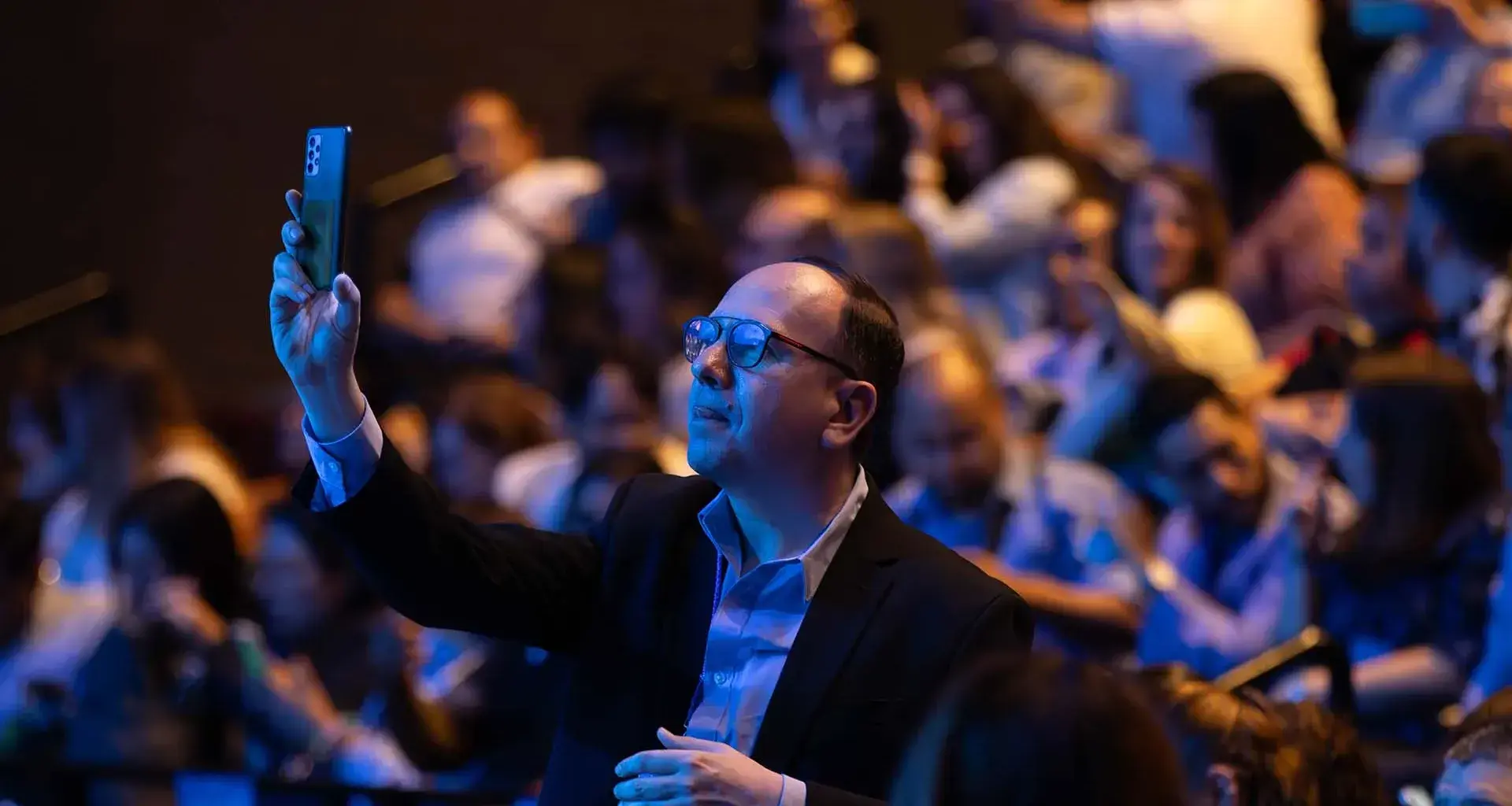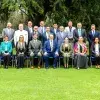Rethinking education, taking advantage of artificial intelligence (AI), and emphasizing human flourishing were some of the discussions at the Tec’s annual meeting of its academic community.
The 2024 National Teachers’ Meeting (RNP) first convened undergraduate and graduate teachers, who had the opportunity to listen to international speakers, carry out collegiate work and receive training in online activities.
PrepaTec subsequently held a face-to-face meeting on the Monterrey campus, where discussing its Educational Training Model was one of the main topics.
CONECTA presents key aspects of the RNP:
- Topics to improve teaching: artificial intelligence, human flourishing, and transdisciplinarity
1. How AI can enrich the educational experience at the Tec
2. How to stop fearing the use of AI in education and why
3. Emphasis on human flourishing in the age of AI
4. Transdisciplinarity to boost students’ skills
5. A university environment beginning in high school
- Progress, institutional alignment, and inspiration
6. How we are heading towards 2030
7. What the 2026 undergraduate syllabuses will look like
8. Professional faculty development and wellbeing
9. PrepaTec and its new value proposition
10. 2024 Inspirational Teachers Award winners honored
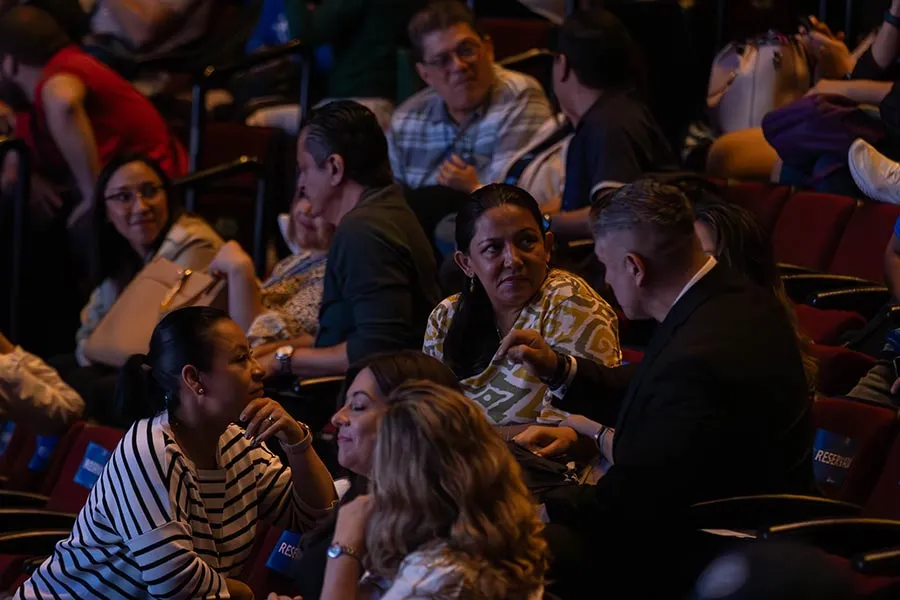
1. How AI can enrich the educational experience at the Tec
David Garza, Tec de Monterrey Rector and Executive President, highlighted the impact and importance of artificial intelligence in education:
“The disruption of AI in different sectors and especially in education gives much food for thought and debate. At the Tec, we’re committed to leading this debate and incorporating these technologies in a way that enriches our students’ educational experience.”
Juan Pablo Murra, Rector for Higher Education, called on professors to integrate artificial intelligence, inviting them to:
- Experiment
Integrate AI and integrate it into teaching tasks, but in a legal and ethical manner.
“Learn what AI does best and what it doesn’t. Share your findings,” he said.
- Preparare
Both yourself personally and your students since we’re looking at a future in which AI is omnipresent, he said.
- Strengthen skills
This will allow you to create a safe learning environment in which students can take risks, discuss, and learn from mistakes.
During his message, Murra explained that the Tec seeks to focus the use of AI on three pillars:
- In the teaching-learning process
- In cross-discipline learning and research to understand its impact on human life.
- Raising ethical considerations.

2. How to stop fearing the use of AI in education and why
Priya Lakhani, founder and CEO of Century Tech, a platform that seeks to improve the education system through AI, was invited to share the keynote presentation “The Good, the Bad, and the Ugly of AI in Education.”
Lakhani mentioned teachers as a priority in her work:
- Stay informed of developments and controversies in AI.
- Follow the evolution of AI.
- Teaching students critical thinking.
“The most important thing teachers need to teach students today is critical thinking and how to evaluate the sources of information provided by AI,” Lakhani stressed.
For teachers who think AI is too complex, Lakhani encouraged them to use it: “You don’t need to learn to program or understand the mathematics behind AI. The important thing is to understand at a high level what AI can do and how to leverage it.”

3. Emphasis on human flourishing in the age of AI
Matthew T. Lee, Director of the Harvard Human Flourishing Network, told Tec faculty that AI represents an exciting change but said that does not mean that motivating people’s development should be set aside.
“Flourishing helps us understand that we need to move towards a good, virtuous place, not only for ourselves but also for all living things and life-supporting systems.”
He pointed out that human flourishing considers the context in which people live, including aspects such as environmental sustainability and social relationships.
“In the pursuit of our own happiness and wellbeing, we need to regenerate the conditions necessary for all to flourish, including future generations and the planet.”
In that sense, he said that the technologies we develop and use must promote a sustainable and equitable future for all.

4. Transdisciplinarity to boost students’ skills
Enrique Margery Bertoglia, education specialist and Director of The Open Institute, was a guest speaker at PrepaTec’s RNP and talked about transdisciplinarity and the development of skills.
According to Margery, teacher preparation can define students’ skills and expertise within their respective disciplines.
He recommended that teachers work together to forge skills that feed and complement each other.
The expert proposed four central roles to finding a balance between human and technical skills that impact students:
- An action role, which is guided by the tasks to be completed.
- A group role that, above all, seeks to listen to others and maintain peace.
- A role for the imaginer, who looks for possibilities and flexibility.
- The list’s role, which is about prioritizing the structure and organization of the process.
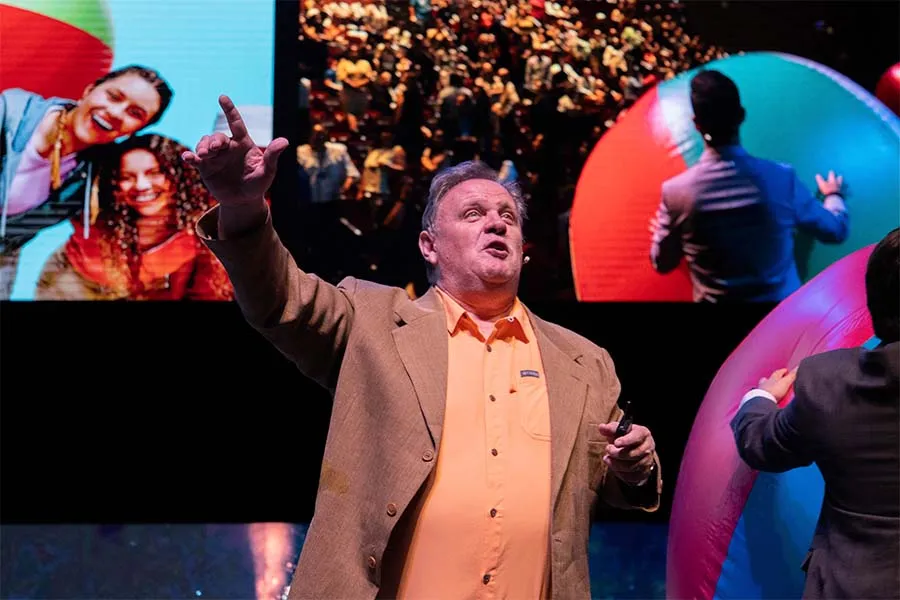
5. An university environment beginning in high school
Ron Berger, professor and leader of the Expeditionary Learning organization, was a keynote speaker at PrepaTec’s RNP.
Berger encouraged teachers to take better advantage of the social and argumentative nature of high school students through group discussion exercises with advanced material such as papers and college dialogue.
For example, he suggested that peer review can be functional, where students and teachers provide each other feedback with constructive criticism.
“The vision for the future involves empowering young people by making them feel capable in the classroom, pushing them towards being part of a college-like environment, and encouraging them to believe that achieving a higher level of education is possible.”

6. How we are heading towards 2030
David Garza shared some thoughts about strengthening the impact, excellence, and prestige of the institution towards 2030.
“We need to be prepared for this coming world and ask the right questions about what education and research will look like in the age of artificial intelligence.
It’s essential that we anticipate these disruptive changes and adapt our strategies in order to continue to offer a cutting-edge education that prepares our students for the challenges of the future,” he said.
Tec de Monterrey’s Rector and Executive President listed the priority issues for 2023:
- Conduct research applied to high impact causes.
- Leverage the strength of being a set of institutions.
- Promote lifelong learning.
- Apply AI in our institutions to achieve transformations.
- Enhance the areas of health.
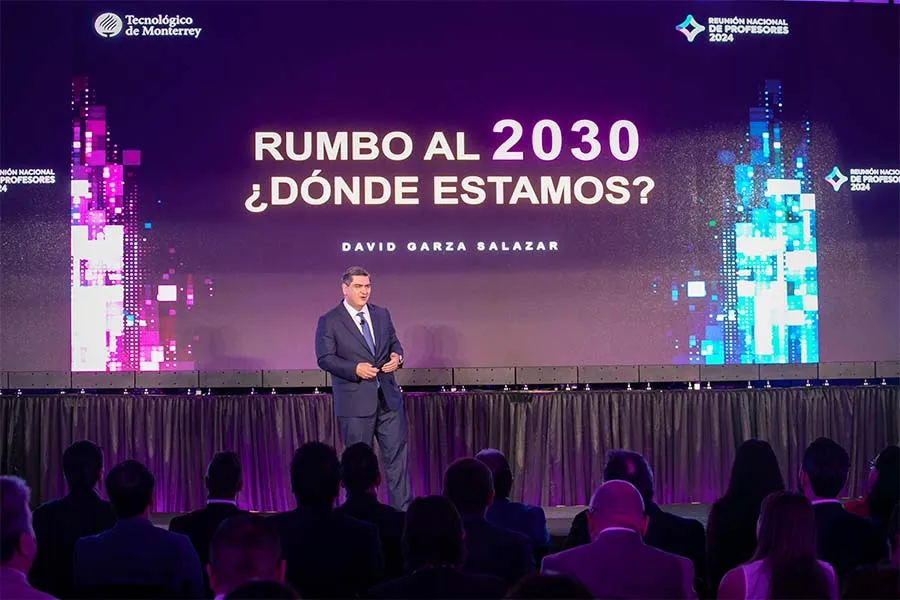
7. What the 2026 undergraduate syllabuses will look like
Rafaela Diegoli, Academic Vice Rector and Co-Chair for the Tec consolidation project, and Ignacio de la Vega, the Tec’s Executive Vice Rector for Academic Affairs, Faculty, and Internationalization, presented the 2026 syllabuses:
1. Compulsory English Leveling: This forms part of the actions established in the Route to Success project.
2. Dual Degrees: The Schools of Business, Humanities, and Education joined the School of Social Sciences in offering dual degree programs.
3. The “Towards Success: Navigating Together” project: This initiative, launched by LiFE in the winter of 2024, is designed for first-time students and offers a day of activities and experiences that contribute to the development of wellbeing, improvement of study habits, and a sense of belonging.
4. Analysis of the Evaluation Process and Transversal Sub-skills: During the 2023-2024 cycle, an analysis of almost 250 training units of the 2016 plans was conducted, which focused on the evaluation process and the revision of the levels of mastery of transversal sub-skills. The results were shared with the academic deans’ offices to implement improvement actions.
5. Curricular Credentials: This was one of the most important elements of the presentation. This initiative seeks to recognize and validate the skills students acquire.
“These credentials recognize the development and comprehensive demonstration of skills and are awarded for achievement of disciplinary skills, cross-cutting skills, formative experiences, and alternative credentials,” explained Rafaela Diegoli.
Since the summer of 2023, Tec graduates have received these credentials along with their digital badges, which can be verified and shared on different platforms.
“Once our students download and share them on social networks, their profiles become even more attractive to employers,” Diegoli said.
Credentials not only validate knowledge but also demonstrate dedication to continuous learning and commitment to professional development.
“Globally, companies and organizations are demanding more competent graduates who require evidence of their skills, knowledge, and aptitudes,” Diegoli said.
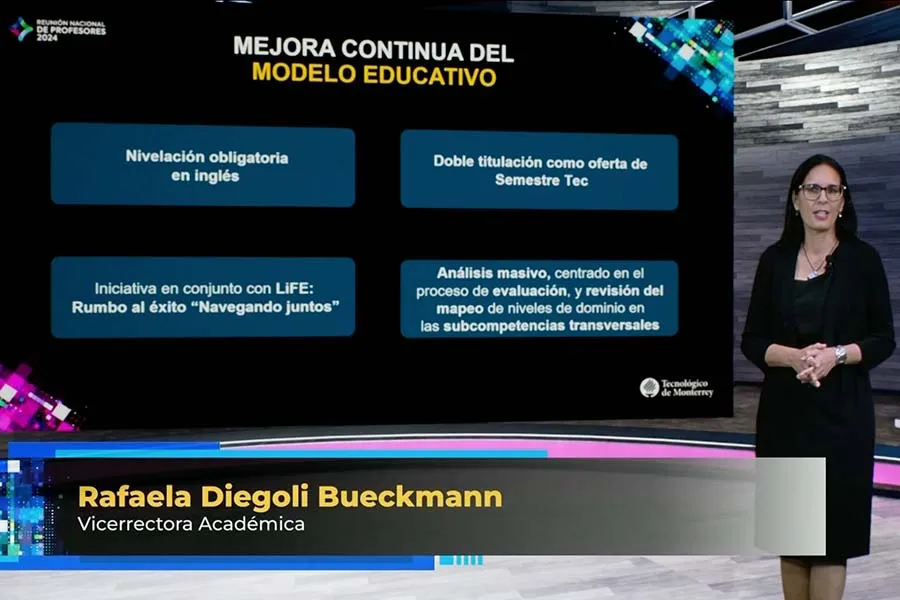
8. Professional faculty development and wellbeing
Ignacio de la Vega, Executive Vice Rector for Academic Affairs, Faculty, and Internationalization, together with Grisel Ayllón, Vice Rector for Faculty at the Tec, announced the deployment of a comprehensive model for faculty development and wellbeing.
This model will accompany teachers from the moment they join the institution, guiding them in their development and wellbeing throughout their careers.
This model includes:
- Experiential learning
- Microcredentials
- Concrete actions to support teachers’ professional and personal growth.
The Tec’s Vice Rector’s Office for Faculty also presented a summary of its achievements and progress during the 2023-2024 cycle, for example:
- The training of more than 8,000 teachers, accumulating a total of 140,000 hours in personal and professional development workshops.
- Implementation of AI in teaching-learning processes: more than 3,500 teachers have been trained in this area, integrating AI into their teaching methods to solve urban challenges and those in other disciplines.
9. PrepaTec and its new value proposition
The Luis Elizondo auditorium received more than 900 teachers and LiFE trainers at PrepaTec’s 2024 National Meeting, after five years of not being held in person at the national level.
A central point of the meeting was to delve into the redefinition of PrepaTec’s purpose.
“Today, we’re thinking about maximizing our students’ value proposition to ensure their success in degree courses at the best universities in the world, including Tec de Monterrey,” said Ignacio De la Vega.
The update of the educational training model that will be implemented in August 2025 was also discussed.
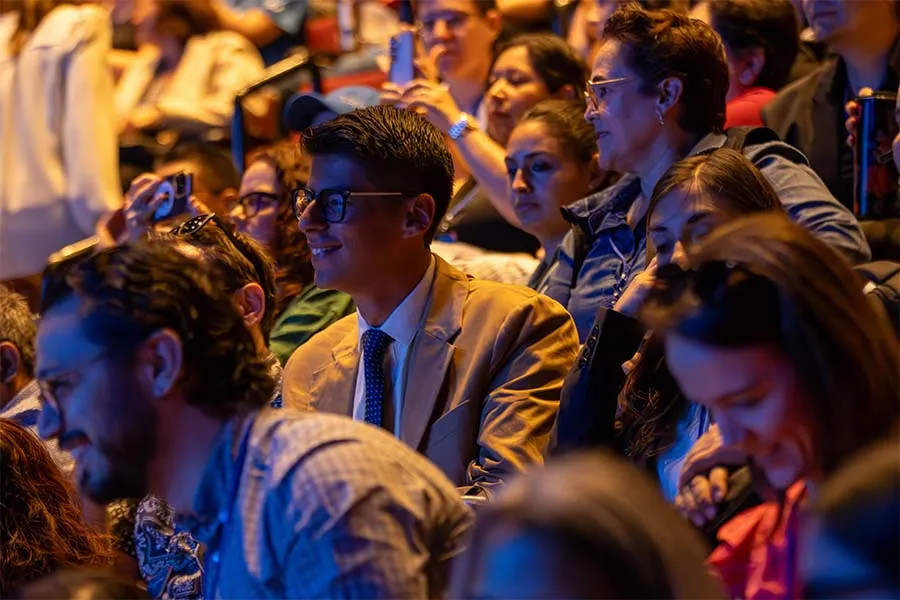
10. 2024 Inspirational Teachers Award winners honored
The Tec de Monterrey recognized teaching efforts with the 2024 Inspirational Teachers Award, the highest award given by the institution to its teachers.
At the undergraduate level, the following teachers were awarded:
- Juan Gabino Díaz, professor from the School of Engineering and Sciences at the Tampico campus
- Paloma Barajas, professor from the School of Engineering and Sciences at the Guadalajara campus.
- Eduardo Aguiñaga, from EGADE Business School
- Emilio Clarke, professor from the School of Engineering and Sciences at the Querétaro campus.
In PrepaTec, the teachers awarded were:
- Cecilia Berzosa, from PrepaTec Santa Catarina
- David Alejandro Duarte, from PrepaTec Sonora Norte
- Mónica Maluy, from PrepaTec Saltillo
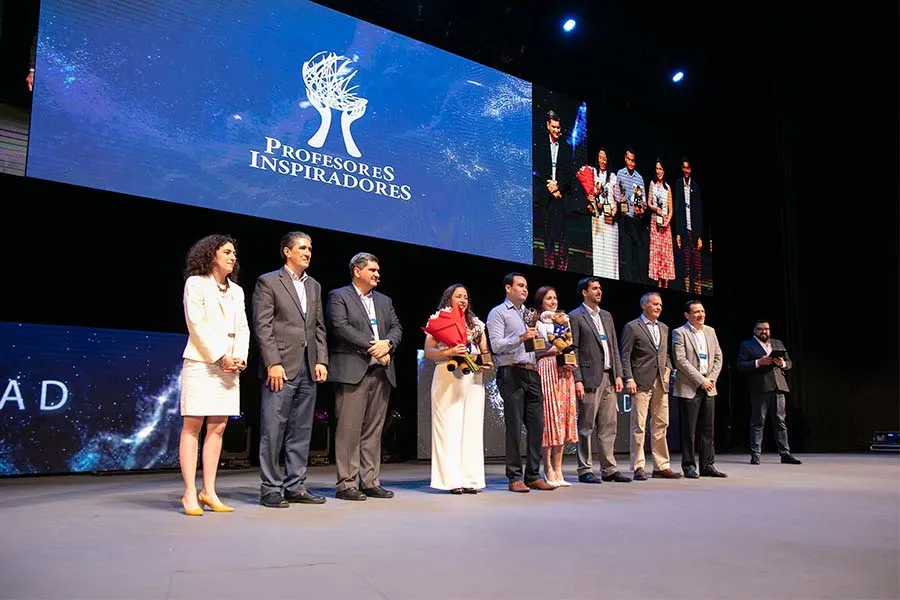
* With information from Susan Irais, Rebeca Ruíz, and Mónica Torres.
YOU MAY ALSO BE INTERESTED IN:

